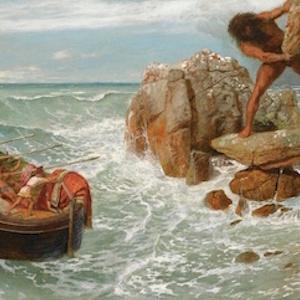
What language did Odysseus speak when he arrived home after his long journey? In Moshe Ha’elyon’s world–and new book–it’s Ladino. The 87-year old survivor of Auschwitz spent four years bringing Homer’s epic into the language of his youth, Ladino — and in the process, wedging a new foothold for the language in world literature.
Ha’elyon grew up learning classical Greek in school in Thessaloniki. When he and his family were deported to Auschwitz in 1942, what some thought was a dead language became an unlikely ticket to life: Ha’elyon traded Greek lessons for extra food, helping him survive.
More than half a century later, Ha’elyon has breathed literary life into another language sometimes thought to be on its way out. Because most of Ladino’s literature consists of sacred text translations and folklore, in translating The Odyssey Ha’elyon found himself pouring the language into a new literary cast: “I had to find words from realms that don’t have words” in mostly-aural Ladino, he said. Next port of call for Ha’elyon: The Iliad.
The Ladino Odyssey is on display at the Castel Museum in Ma’aleh Adumim.
JTA has documented Jewish history in real-time for over a century. Keep our journalism strong by joining us in supporting independent, award-winning reporting.





